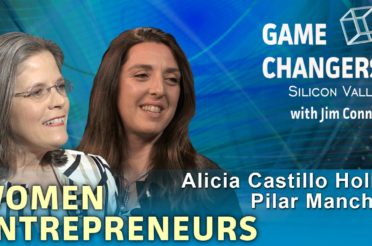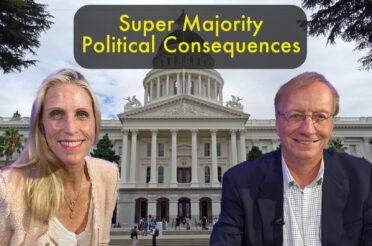Overview
Seed Rounds give startup companies that first validation that they are investible. Getting through the process is both an art, a science, and a test in perseverance.
Most preparatory training follows a static prescription of logical steps, while the reality is quite different. Entrepreneurs have to make a memorable impression, one that does not evaporate as soon as the next presentation starts. Essentially, the presentation needs to be in a story format that will enable the investors can share with others in their group and outside their group.
Secondly, entrepreneurs will need to convey that they have the right mix of industry knowledge, experience, vision, and leadership to succeed in developing and deploying a “new” product.
Third, the investors must buy into the confidence and belief that this startup team has the temperament, tenacity, and passion to persevere through the challenging times that lay ahead.
But this campaign also needs a funding partner. Entrepreneurs in many cities start their journey with their local angel investors and it’s the best place for building a team of advisors and investors who will help the management team build and operate a startup company.
Scott Jacobs, Executive Director of the Queen City Angels in Cincinnati, Ohio, pulls back the curtain in a wide-open conversation about:
The startup ecosystem in Cincinnati
Leveraging a relationship with local corporations
The startup selection and qualification process
The structure of the fund
The investment approval process
However, this conversation goes into another dimension as we explore the type of individuals who join the Queen City Angels. Scott discusses their motivations, and the programs to train new members on contributing to the startup community.
Transcript
0:00.00.0 Jim: I want to welcome you to the show, it’s good to see you, and I’ve known you and Tony for a long time, and Queen City angels and since he has a special place in my heart because I attended the University of Cincinnati. And in fact, some of the experiences I had there with the co-operative work-study program were absolutely critical in the career direction I took, my first job was as a kind of an apprentice computer programmer many years ago at NCR. But that had a very significant impact in the direction I took so, as I said, since a great place, universal experience for me, and I’m glad to have you here, and I’ll start by saying that if you can give an overview of the startup ecosystem in Cincinnati.
0:00:42.2 Scott Well, thank you very much, Jim. I appreciate you having me on your show. This Cincinnati ecosystem, I think is very robust. What we found over the last 15 years, in particular, is that really for an ecosystem to be very robust, you have to have the corporations involved in one shape, way, shape, or form, and we had McKenzie come in into a study on our local ecosystem, probably 15 years ago, 13 years ago, and they said, one of the problems that were Cincinnati was faced with is we have an abundance of Fortune 500 companies here in Cincinnati, and they were not heavily involved in the local entrepreneurial ecosystem, and lo and behold, probably seven or eight years later, we did the same study with McKenzie and they said, Hey, the large corporations are not heavily involved in the ecosystem and nothing can really change, and a lot of that’s changed for the last five years. There was an organization that was started up as a cooperative with Kroger and P and G’s called sentries, they created a fund of funds, and that’s helped to jump-start the ecosystem, we’ve seen numerous accelerators get started here, Urban accelerators, more lifestyle or of the accelerators, women accelerators.
0:02:09.1 Scott So the universities all have strong entrepreneurial programs in this region, so there’s a lot of activity and a lot of interest in the space, but I think a lot of work to do still, and I think Cincinnati has always suffered from being understated for a long time, people around here in Cincinnati would say, We’re the best-kept secret in the country. Well, I’m a marketing guy, you can’t be a best-kept secret in today’s high profile world, so I think that there are great opportunities here, it is a very easy place to navigate, you can get virtually anywhere within 20 minutes or half an hour, the cost of housing here is fantastic. It’s just amazing. And there are some of the opportunities with the large corporations where they’re really getting involved in the space more and more now, they’re looking in the venture space, they’re looking at how to be a little bit more entrepreneurial, we’ve been doing programs at Queen City Angels with Procter and Gamble for a few years now, and a large corporation like that, you would think that they would not have a whole lot of interest in the entrepreneurial space, but you think about the large corporations, they’ve gotta be entrepreneurial these days too…
0:03:26.1 Scott Yeah, I take a look at what Kroger has done with the covid crisis. Absolutely fantastic. You weren’t able to just drive to the store and pick up groceries before, what’s happened here in our current Covid-19 situation, Kroger really accelerated what they need to do in order to accommodate or the digital consumer world.
0:03:47.9 Jim That’s interesting, so you have the bigger corporations, they’re being Kroger, very lack grocery chain, who is I’ve heard reinvented themselves, as well as the big P and G protein gamble and a number of other mid-sized moderate-sized public corporations who are now participating to develop the entrepreneurial ecosystem.
0:04:05.0 Scott Yeah, we’ve done programs like with Procter and Gamble, we’ve actually gone and done sort of an angel 101 session with their executives so they can understand what Angel investing is all about and what our perspective is, we are looking at deal flow from them because they’re seeing early-stage ideas, and in some cases, there may be an opportunity where we can take a look at it where it’s not approaching venture capital in terms of financing, and we may be able to provide a little funding for those types of companies and get them ready to where they can get larger runs, apical and be kind of ready to be able to operate with a global corporation, and I think that’s one of the challenges in our ecosystem, quite frankly, and I don’t think this is uncommon with other cities, is there’s a large gap between big and small. So when an entrepreneur says, Gosh, I really wanna do work with Procter and Gamble, they’ll say, Well, you ready as a service on a global basis, and guess what, I… As a start-up, you’re probably not gonna be ready to do that… Well, I think what we’re trying to do in this ecosystem is how do we fill that gap so that an entrepreneur can get a chance to do work with a Big-Co and then work their way into it and not be overwhelmed and not be crushed by the fact, you have to be global or multinationals
0:05:35.4 Jim At the Queen City angels, now you guys have been around a long time, and we shape the founders here, and I’ve heard today speak about this, but you guys are very early in the configuration of your organization as a fund is that correct?
0:05:50.9 Scott Well, we’re on our sixth fund now, and when we first got started, and you know how angel groups are formed and how they operate, we were founded as a network when we first got started, and there were five angel investors that got the Quincy… The angels off the ground, and then we grew to 19. I think we grew probably like a lot of the new angel groups too, but our first five funds, we were fortunate enough that the State of Ohio was a co-investor with us, which was good and bad because it was good in the fact that we had leveraged from the state money, but we were limited by only being able to invest in companies that were located in a state of Ohio… Our sixth fund now, which is targeted to be a 10 to 12 million fund, does not have state money in it, and we can get DFO from anywhere in the country. And as you mentioned, Tony’s been around for a long time, Queen City angels have been around for a long time. We feel that we’ve been fortunate to build up a pretty decent reputation, we’ve got a pretty expansive network, so we’re getting DFO from everywhere.
0:07:07.6 Jim: So it’s a fund, everybody can drive some money, then the membership votes to do the investment or not do the investment at a certain level, is that correct?
0:07:15.6 Scott: Yeah, we’ve got a really nice process that we use in our deal flow, when an entrepreneur is interested in seeking out funding from us, they fill a pre-screening questionnaire off of our website on the first set of eyes to see those deals, if they meet minimum requirements that I ask them to formally apply for funding off of our investor platform, many people know of gust, we use _roSeeder, and based on that information, we determine whether or not we want the company to go into a screening meeting, we’re pretty generous with our time with entrepreneurs when we screen a company, we give them an hour and 15 minutes, give them plenty of time to talk about what they’re working on, not really enough time to do a demo or a deeper dive that you would see in due diligence, but we give them a pretty good opportunity to tell us what they’re up to, and then based on that, we invite companies to come in and present to QC at our investor meetings. We have investor meetings every three weeks, and I joke about it, I tell people that my life runs in three-week cycles, it’s the members that are doing the due diligence, and our members that are investors in our fund are voting members of that fun.
0:08:26.1 Scott And it’s those folks that ultimately vote on the deal as to whether or not we’re gonna approve the deal for investment.
0:08:32.2 Jim All entrepreneurs, when I know this following question What should I do to pave the way? Should I get an introduction to that committee or should I just go through the normal process? Submit, they don’t know me, I come in, I present to them over some period of time, maybe it’s a week to two weeks, and then they make a decision, is there anything I can do to enhance my chances or opportunity to get a connection with them? You
0:08:54.8 Scott Know, the best way for entrepreneurs, I think, to get engaged is to reach out to the executive director, and that’s my job to my job is how can I do the matchmaking so that I can find CCA members that have the relevant expertise that I can match them up with entrepreneurs and get them prepped to get into our system, and we’re gonna talk about this, I think, but that’s one of the things that we did early in our history, we created an entrepreneur boot camp, a two-day program that talks about everything that an entrepreneur needs to know from an angel investor perspective on their deal in order to become investable, everything from front-end innovation to have leverage, intellectual property, how do you pitch angels? I gotta pay a royalty to my predecessor every time I mentioned the view from the heavens session that we do at the boot camp, what angel investors are looking for. And so we wanna do everything we can to help entrepreneurs or… Well, and I think reach out to the executive director and network and find angel investors out there, and I try to assign where I can of members of our group that will take the entrepreneurs under their wing and help coach them and get them ready to be able to come into our system.
0:10:12.9 Jim Very good. Well, I wanna go into a little bit about this, what you’re doing, the Bootcamp, and how it operates under Startup University.
0:10:19.4 Scott Back to what I had mentioned earlier when entrepreneurs would come to Queen City Angels, they weren’t able to make a pitch, and we feel it’s our obligation to help the entrepreneur to every stage. So one of the things I didn’t mention is that when we set up a screening meeting for an entrepreneur, we send them a PowerPoint deck that outlines all the content they should cover when they come into the screening meeting, 10 slides, no more than 20 minutes of presentation 30-point type, here’s what your content should be on those 10 slides, and we wanna make sure that the entrepreneurs have every chance to win, so that’s why we started the boot camp, and in the early days, as you can imagine back then, people were writing business plans and we still advocate that you write a business plan, but the boot camp isn’t designed to help you figure out how to write a business plan, now it’s more how do you take that business plan and come up with an executive summary, how do you come up with a proper pitch, how do you do an elevator pitch, what’s your value proposition? What’s your go-to-market strategy? Early on, we cover topics that have evolved over the years, we’ve done sessions on the lean startup, we’ve done sessions on design thinking, we’ve got a global expert that speaking into that camp next week on systematic inventive thinking, and there are only about nine universities in the world that advocate, that process.
0:11:53.9 Scott There are only three in the United States, and one of them is based at the University of Cincinnati, so Droid is gonna speak on that topic, and it’s not often that you’re gonna have a speaker like that’s a multiple thousands per dollar a day consultant with corporations on this innovation process that you’re gonna hear at a boot, can we do 12 sessions over two days? The first session is, do you even have a product or service? So if you take a look at CB Insights, they track failure, startup failures, and the number one reason for startup failure, and I’ll throw it back to you, Jim, what do you think is the number
0:12:35.1 Jim Run out of cash, inappropriate product fit, or market fit, one of those three.
0:12:39.4 Scott Well, you’re very expert, I’ve been around for a while. So inappropriate product-market fit is the number one cause of failure.
0:12:48.2 Scott So she rifles through, Hey, what do you do to determine whether or not anybody has ever had this idea before, how do you do the research, how do you determine whether or not there’s even a need for your product and or service in the marketplace? How do you do that early research, and then we’ve got true boy talking about systematic inventive things, what third session is, Well, if you think you have a need in the marketplace, how are you gonna develop the product, and then we do some other sessions on, How do you use growth hacking. How do you use social media in your start-up…
0:13:23.5 Jim You’ve almost sold me to get on a plane and come to your next Boot Camp, I’m telling you the social marketing for all of us, a little older generation here, frankly, I was a marketing major, all things in college too, and it is so… So completely and radically different, and it evolves so fast, of course, you’ve got the big social media engines and you got the blogs, and you’ve got the podcast like this, and you’ve got video.
0:13:48.4 Scott We… We were actually looking at doing a Twitter campaign ad campaign, and CA, I think we were kinda dinosaurs in terms of marketing, we get members through referrals and we get deal flow sources that come to us, but we’ve looked at LinkedIn ads and we’ve looked at… I looked at the Twitter ad campaign, I’m a marketing major as well, so I love that kind of stuff, and I think it’s fascinating how some of that kind of marketing platforms can be used.
0:14:21.4 Jim A fascinating… It’s amazing. Let me ask you, is there a demographic profile of the type of entrepreneur who does well in your ecosystem, I might say the mid-30s, spend eight, 10 years in the industry, has achieved some level of success and recognition history, they’ve developed expertise. They have a product idea and a market idea that fit well.
0:14:45.6 Scott I think what we’re looking for first and foremost is coachability for the entrepreneur, once an entrepreneur takes their start-up and they launch it… They’re gonna run into challenges. Right, and how well are they gonna be able to adapt to that, and how well are they gonna leverage our advisors and listen to the advice and be coached so that they can adapt quickly. Now, I think entrepreneurs hate that term pivot because that implies that they had to make a fast change, where good entrepreneurs are always monitoring media business every single day. So they’re making changes all the time. It isn’t a matter of like, all of a sudden I gotta go in this direction, so I think that that’s the biggest thing that we look for, and that’s a characteristic that you can find or not… Fine. In all people, it doesn’t matter age, ethnicity, culture, whatever… The growing trend for entrepreneurs of the demographic is over 40 and probably even over 50, and I think the reason for that is those folks tend to have subject matter expertise, they’ve spent many years in a particular vertical or working at a particular job, or they understand a certain technology well enough that they’re at a point in which they can go out and launch a company, and they probably have the personal financial means that they can put their own money into the deal, which is something that we look for it ’cause we wanna make sure that the entrepreneurs have some of their own skin in the game, and I think that those are the types of entrepreneurs that we’re looking for, but we’re really looking for entrepreneurs that understand what they’re gonna be up against because it’s gonna be a tough road.
0:16:28.5 Scott Do they have the endurance, do they have the stamina to be able to overcome those dark nights and the challenges that they’re gonna face, and they’re gonna see it all the way through that
0:16:39.1 Jim It takes a lot of… Well, it takes a lot of perseverance, but there are challenges that people who have not been to simply can’t imagine, frankly, despite the various movies that you see in Silicon Valley and star world.
0:16:52.8 Scott We started a program, a monthly technology speaker program that we call a kick start, and I bring in entrepreneurs that come in and they just talk about their journey, one of the speakers that we had at the kick start a few years ago came in and he talked about the top reasons why his startup failed, and I thought that was so incredibly brave on his part, it gave me goose pond when we were listening to him, and he mentioned in a… So along the lines of what you were just saying as a CEO, he didn’t pull the trigger fast enough when he had employees that were underperforming, and so you have to understand as you’re gonna be charged with the responsibility of making those tough decisions, and in some cases, you’re gonna have to have those critical conversations, and sometimes you’re gonna have to get rid of dead weight, and you’re gonna have to do it sooner rather than later, because ultimately you may actually hurt your corporate culture if you don’t do that. Well.
0:17:54.0 Jim Let me touch it a little bit, what kind of members do you look for to join QC or do you have more people in the waiting line than you can handle right now? Are you always bringing in new investors…
0:18:03.7 Scott We’re always bringing the new investors, I think primarily what we look for are people that have intellectual curiosity, they like to learn about new things, you can’t expect every single new angel investor to know everything, especially with a new digital world and new technologies, but… Fundamentals apply to every business, whether it’s a medical device or it’s a SaaS platform or whatever it may be, and if you’ve got a new member that’s got a corporate background, they’d probably have great business experience and they can quickly understand the business fundamentals that this… A startup may have, but intellectual curiosity, I think sort of a service mentality, they wanna give back, I think that they want to spend time with entrepreneurs and help them, so I think it’s a service and sort of philanthropic or characteristic that we look for, and they have to have risk collars, right, because there are gonna be a lot of losses in this space, I think the empirical data says about half of your deals are out of 10, but are gonna go south, and so you’re gonna have to be able to stomach some losses and you’re gonna have to be patient.
0:19:26.6 Scott But we look at people who wanna learn, and I think that’s primarily in addition to what we’ve done with entrepreneurs, we did Angel boot camps from the very beginning, who went on to be pretty well now, I… Huston went through one of our angel boot camps and that was the genesis for his starting OTAF, the Ohio Tech Angel Fund, located just two hours up the road here in Ohio, from Cincinnati. And we started a program a couple of years ago, Jim, that we call an Ascent membership where we interviewed one of our new members a couple of years ago, and he said, I’m an angel with a little tiny wings, and I hope that I will grow up to have bigger wings one day, and so that’s sort of the idea behind the ascent membership, much smaller financial investment aggregated into a special purpose LLC, that investment are fun, but then we wrap around six to eight training sessions with those members to teach them everything about angel investing, terminology, term sheets, valuation, due diligence, and so we’ve already seen… That becomes a farm system for our regular members, and we’ve already seen seven of those people graduate to becoming regular format…
0:20:49.7 Jim After hearing you and I’ve known you over the years. You are the best-kept secret. I gotta admit that… And maybe we can help retrofit that, that’s very… Canyon really are, ’cause I talk to a lot of different groups and the angel investors throughout the country, and this is a remarkably deep and sophisticated program you have, and
0:21:07.3 Scott We tell people that if there’s interest in the boot camp, the website is always up and running, the address is www.QCAbootcamp.com. There’s registration information there about the Bootcamp.
0:21:24.3 Jim QCABootCamp.com, correct. And QCA.com for your Queen City Angels.
Scott, you’ve been absolutely outstanding, I love the content, I love the energy and what you’re doing and your ability to explain… It’s been phenomenal. So I wanna thank you for your time on the podcast.
Scott: You’re a great friend of QCA. You’ve been a great supporter of the angel investor community for many years, thank you for all your service on the board of the Angel Capital Association over the years, you’ve been doing this podcast for a long time, it’s a great program. And thanks for all that you do and we miss you here in Cincinnati.
Jim: Well, I do have to get back there. There are some people who have said, you come on back, the Alumni Association has been reaching out.
So the last thing is if people want to contact you directly, and do you have an email and you know if some ultimate… Go ahead and give us a
0:22:10.3 Scott My contact is sjacobs@qca.com. Or call me on my cell phone. I’m always accessible. 513-373-6972.
0:22:23.3 Jim Wow, you’re very generous.
0:22:25.5 Scott Love to chat with you. If we can’t help you, we’ll try to find somebody who can.
Contact Info
Scott Jacobs : sjacobs@qca.com
Jim Connor : jconnor@gamechangers.tv
Website Link - : www.qca.com








Leave a Reply
You must be logged in to post a comment.